Home — Essay Samples — Literature — Books — Things Fall Apart

Essays on Things Fall Apart
Things fall apart essay topics and outline examples, essay title 1: the cultural clash in "things fall apart".
Thesis Statement: Chinua Achebe's "Things Fall Apart" explores the collision of Igbo traditional culture and European colonialism, illustrating the devastating consequences of cultural disintegration.
- Introduction
- Igbo Traditional Culture and Values
- The Arrival of European Colonists
- Conflicts and Changes in Igbo Society
- The Tragic Consequences of Cultural Clash
Essay Title 2: Character Analysis of Okonkwo in "Things Fall Apart"
Thesis Statement: Okonkwo, the protagonist of "Things Fall Apart," embodies both admirable and tragic qualities, making him a complex character whose fate reflects larger themes of the novel.
- Okonkwo's Early Life and Ambitions
- Strengths and Flaws of Okonkwo's Character
- Okonkwo's Struggles and Downfall
- Okonkwo's Role in the Novel's Themes
Essay Title 3: Gender Roles and Women's Power in "Things Fall Apart"
Thesis Statement: Achebe's "Things Fall Apart" challenges traditional gender roles within the Igbo society by portraying the strength, resilience, and influence of women, particularly through the character of Ezinma.
- Igbo Gender Roles and Expectations
- Ezinma as a Symbol of Female Empowerment
- Other Strong Female Characters in the Novel
- The Evolution of Gender Dynamics
Cultural Collision in Nwoye
Irony in things fall apart, made-to-order essay as fast as you need it.
Each essay is customized to cater to your unique preferences
+ experts online
Sharing Social Context a Literary Analysis
Things fall apart: change vs tradition, the portrayal of women in things fall apart, repression and tragedy in achebe’s things fall apart, let us write you an essay from scratch.
- 450+ experts on 30 subjects ready to help
- Custom essay delivered in as few as 3 hours
How Okonkwo’s Outward Conformity Hides His Personal Questioning in Things Fall Apart
The main aims of the author in "things fall apart", okonkwo's polarized concepts of femininity and masculinity in things fall apart, the importance of adapting to changes in "things fall apart" by chinua achebe, get a personalized essay in under 3 hours.
Expert-written essays crafted with your exact needs in mind
The Use of Proverbs in Things Fall Apart by Chinua Achebe
Achebe's goal to increase global comprehension of african culture through things fall apart, critique of the effect of western imperialism on the third world in things fall apart, the effects of colonialism on igbo society in things fall apart and the joys of motherhood, the allegory of the title things fall apart, tragic hero in "things fall apart": triumph and consequences, things fall apart and purple hibiscus: female sabotage in an african setting, the use of proverbs in chinua achebe’s novel, language as a bridge to understanding in things fall apart, a novel by chinua achebe, how chinua achebe uses settings in his "things fall apart", impacts of post-colonialism in things fall apart, surfacing, and fire on the mountain, things fall apart: sexism in the igbo culture, the importance of family in white teeth, disgrace and things fall apart, theme of parental conflict in purple hibiscus and things fall apart, evaluation of the role of okonkwo as illustrated in achebe's things fall apart, analysis of okonkwo as a tragic hero, comparison of "heart of darkness" and "things fall apart", the portrayals of imperialism in "things fall apart" and "heart of darkness", the use of ethos, logos and pathos in the book "things fall apart" by chinua achebe, comparative analysis of "heart of darkness" versus "things fall apart".
1958, Chinua Achebe
Novel; Allegorical, historical fiction
Ezinma, Nwoye, Ikemefuna, Okonkwo, Mr. Brown
The European invasion and earlier colonial accounts of African history.
Colonialism, culture, family, friendship, life, struggle, politics, a cultural clash, Igbo society
While the African culture is often ignored, this particular book speaks directly about life in the Igbo society. It also tells an insider story of the African experience that becomes clear for those people who are not directly involved. It tells about the spiritual history of African people and makes a cultural aspect that is often ignored even through the lens of colonial background.
This complex, yet profound novel tells us a story of Okonkwo, a wrestling champion belonging to the Igbo community. The novel takes place among the fictional clan where we learn about family life, history of the main character, custom, society, and the usual challenges. The third part of the book deals with the Christian missionaries and the European colonialism.
The title of the book has been taken from a poem called "The Second Coming", which has been penned by W.B. Yeats. Achebe's goal has been to let the readers learn more about the African society that has been dynamic and vivid, yet completely different from the Western society. The book shows Africa as a modern and well-developed society. The "Things Fall Apart" manuscript has been lost for months until it has finally been found for publishing. Achebe has been influenced by the style of Charles Dickens. The book has given a start for the African literature all over the world. Achebe's work has helped to break down numerous stereotypes about the African society and the tribes.
“The white man is very clever. He came quietly and peaceably with his religion. We were amused at his foolishness and allowed him to stay. Now he has won our brothers, and our clan can no longer act like one. He has put a knife on the things that held us together and we have fallen apart.” “A man who calls his kinsmen to a feast does not do so to save them from starving. They all have food in their own homes. When we gather together in the moonlit village ground it is not because of the moon. Every man can see it in his own compound. We come together because it is good for kinsmen to do so.” “If you don't like my story, write your own” “Then listen to me,' he said and cleared his throat. 'It's true that a child belongs to its father. But when a father beats his child, it seeks sympathy in its mother's hut. A man belongs to his fatherland when things are good and life is sweet. But when there is sorrow and bitterness he finds refuge in his motherland. Your mother is there to protect you. She is buried there. And that is why we say that mother is supreme. Is it right that you, Okonkwo, should bring your mother a heavy face and refuse to be comforted? Be careful or you may displease the dead. Your duty is to comfort your wives and children and take them back to your fatherland after seven years. But if you allow sorrow to weigh you down and kill you, they will all die in exile.” “Age was respected among his people, but achievement was revered. As the elders said, if a child washed his hands he could eat with kings.”
The most important lesson that this book brings and a reason why it is essential for us is the socio-cultural clash that takes place as the colonial times arrive. We are given an opportunity to compare the things that were usual for Igbo community and the changes that immediately took place, mostly against a person's will.
It is an important topic that helps us to write about the culture, society, our background, history, and the changes that we have to endure when the new changes come. The book is a great example of how the old friendships and tradition vs change instantly become broken when the cultural pressure comes up. It is also a great novel that tells us about our faith and the rule of power.
Okonkwo is an element or a symbol of peripeteia or a dramatic reversal. We can follow Okonkwo's path from being a man of respect to becoming an outcast in his tribe (clan). The tragedy of his death (suicide) is what represents the downfall.
1. Rhoads, D. A. (1993). Culture in Chinua Achebe's Things fall apart. https://www.cambridge.org/core/journals/african-studies-review/article/abs/culture-in-chinua-achebes-things-fall-apart/D123B160B650B9BE84E6E85ACF032B9A African Studies Review, 36(2), 61-72. 2. Caldwell, R. (2005). Things fall apart? Discourses on agency and change in organizations. Human relations, 58(1), 83-114. (https://journals.sagepub.com/doi/abs/10.1177/0018726705050937?journalCode=huma) 3. Ikuenobe, P. (2006). The idea of personhood in Chinua Achebe’s Things fall apart. Philosophia Africana, 9(2), 117-131. (https://www.pdcnet.org/philafricana/content/philafricana_2006_0009_0002_0117_0131) 4. Parmentier, M. A., & Fischer, E. (2015). Things fall apart: The dynamics of brand audience dissipation. Journal of Consumer Research, 41(5), 1228-1251. (https://academic.oup.com/jcr/article/41/5/1228/2962093) 5. Nnoromele, P. C. (2000). The Plight of a Hero in Achebe s" Things Fall Apart". College Literature, 27(2), 146-156. (https://www.jstor.org/stable/25112519) 6. Shiner, M., Scourfield, J., Fincham, B., & Langer, S. (2009). When things fall apart: Gender and suicide across the life-course. https://www.sciencedirect.com/science/article/abs/pii/S0277953609003670 Social Science & Medicine, 69(5), 738-746. 7. Ten Kortenaar, N. (1991). How the centre is made to hold in Things Fall Apart. ESC: English Studies in Canada, 17(3), 319-336. (https://muse.jhu.edu/article/694908) 8. McCormick, G. H., Horton, S. B., & Harrison, L. A. (2007). Things Fall Apart: the endgame dynamics of internal wars. Third World Quarterly, 28(2), 321-367. (https://www.tandfonline.com/doi/abs/10.1080/01436590601153721)
Relevant topics
- The Tell Tale Heart
- A Modest Proposal
- Into The Wild
- Bartleby The Scrivener
- Between The World and Me
- The Outsiders
- To Kill a Mockingbird
- The Crucible
- Catcher in The Rye
- Thank You Ma Am
By clicking “Check Writers’ Offers”, you agree to our terms of service and privacy policy . We’ll occasionally send you promo and account related email
No need to pay just yet!
Bibliography
We use cookies to personalyze your web-site experience. By continuing we’ll assume you board with our cookie policy .
- Instructions Followed To The Letter
- Deadlines Met At Every Stage
- Unique And Plagiarism Free
Literary Articles
- A Farewell to Arms (1)
- Absurd Drama (5)
- African Literature (11)
- Agamemnon (2)
- Agha Shahid Ali (1)
- American Literature (32)
- Amitav Ghosh (6)
- Anita Desai (1)
- Aristotle (6)
- Bengali Literature (4)
- British Fiction (20)
- Charles Dickens (8)
- Chaucer (1)
- Chomsky (11)
- Classics (12)
- Clear Light of the Day (1)
- Cotton Mather (1)
- Death of a Salesman (5)
- Derek Walcott (3)
- Derrida (1)
- Descartes (1)
- Dr. Samuel Johnson (7)
- Edward Said (1)
- Elaine Showalter (2)
- ELT Terms Difined (20)
- Emily Bronte (6)
- Emily Dickinson (3)
- English History (9)
- English Language (2)
- English Literature (2)
- Great Expectations (7)
- Greek Literature (7)
- Heart of Darkness (2)
- History of English Language (15)
- History of English literature (9)
- Indian Literature (18)
- Indian Literature in English (2)
- Indian Poetry in English (23)
- Irish Literature (4)
- John Donne (2)
- John Keats (5)
- John Locke (2)
- Kamala Das (17)
- Kim by Kipling (2)
- Latin American Literature (2)
- Life and time of Michael K (3)
- Linguistics (13)
- Literary Criticism (28)
- Literary Terms (7)
- Literary Theories (19)
- Love Song of J. Alfred Prufrock (1)
- Machiavelli (2)
- Magic Realism (2)
- Marvell (2)
- Maupassant (1)
- Measure for Measure (3)
- Metaphysical poetry (3)
- Native Son (1)
- Nissim Ezekiel (4)
- Oedipus Rex (2)
- Othello (5)
- Phaedra by Seneca (3)
- Philosophy short notes (1)
- Postcolonial Reading (1)
- Postmodernist reading (2)
- Pride and Prejudice (4)
- Psychoanalytic Reading (1)
- Quartet (1)
- R K Narayan's The Guide (10)
- Red Badge of Courage (1)
- Riders to the Sea (1)
- Robert Frost (4)
- Roland Barthes (3)
- Romantic Literature (13)
- Romantic Poetry (4)
- Ronald Barthes (3)
- S .T . Coleridge (4)
- Samuel Beckett (1)
- Saul Bellow’s Seize the Day (1)
- Seamus Heaney (1)
- Seize the Day by Saul Bellow (4)
- Shakespeare (22)
- Shakespeare's Sonnets (6)
- Shelley (2)
- Song of Myself by Whitman (3)
- Sonnets (3)
- Sons and Lovers (5)
- Sophocles (2)
- South Asian Literature (2)
- Strange Pilgrims by Gabriel Garcia Marquez (3)
- T. S . Eliot (10)
- Teaching Language Through Literature (5)
- Tempest (4)
- Tennyson (1)
- The Ancient Mariner (5)
- The Great Gatsby (3)
- The Iliad (1)
- The Old Man And The Sea (1)
- The Playboy of the Western World (3)
- The Return of the Native (4)
- The Scarlet Letter (2)
- The Spanish Tragedy (1)
- The Turn of the Screw (3)
- The Waste Land (2)
- The Zoo Story by Adward Albee (4)
- Things Fall Apart (4)
- Thomas Hardy (4)
- Victorian Literature (5)
- W. J. Mitchell (1)
- W.B. Yeats (11)
- Waiting for Godot (3)
- Western Philosophy (13)
- William Blake (3)
- Wole Soyinka (5)
- Wordsworth (11)
- Workhouse Ward (1)
Friday, November 8, 2013
Significance of the title of the novel 'things fall apart' by chinua achebe, writer's profile.
Things Fall Apart Chinua Achebe
Things Fall Apart essays are academic essays for citation. These papers were written primarily by students and provide critical analysis of Things Fall Apart by Chinua Achebe.
Things Fall Apart Material
- Study Guide
- Lesson Plan
Join Now to View Premium Content
GradeSaver provides access to 2360 study guide PDFs and quizzes, 11007 literature essays, 2769 sample college application essays, 926 lesson plans, and ad-free surfing in this premium content, “Members Only” section of the site! Membership includes a 10% discount on all editing orders.
Things Fall Apart Essays
Chinua achebe's portrayal of pre-colonial africa: anonymous, things fall apart.
The concept of balance in Achebe's novel, Things Fall Apart, is an important theme throughout the book. Achebe introduces this idea with an excerpt from William Butler Yeats's poem, "The Second Coming." The notion of balance is stressed here as...
The Destructive Clash of Cultures Jennifer Chiu
In their respective works Things Fall Apart and The Joys of Motherhood, both Chinua Achebe and Buchi Emecheta depict the effects of colonialism on Igbo society.
While Achebe demonstrates the gradual process of colonial imposition, Buchi Emecheta...
The Role of Women Annie White
Chinua Achebe's Things Fall Apart explores the struggle between old traditions within the Igbo community as well as Christianity and "the second coming" it brings forth. While on the surface, it appears the novel narrows its focus to a single...
The Comparison of One Hundred Years of Solitude with Things Fall Apart Justin J.R.K. Kirkey
By Justin J.R.K. Kirkey
An Involved Essay: The Comparison of
One Hundred Years of Solitude with Things Fall Apart
Things - and societies - fall apart. Societies are born; they grow, thrive, decline, and finally perish. Their procession through...
The Release of African Culture on the World Michael Alexander MacGill
In the novel Things Fall Apart, Chinua Achebe uses Okonkwo's story to elaborate a deeper, more comprehensive understanding of the cultural values of African tribes. Achebe wrote Things Fall Apart as a rebuttal to Joseph Conrad's Heart of Darkness....
Heart of Darkness and Things Fall Apart: Complements, or Contrasts? Audrey Fisher
When the Europeans arrived in Nigeria to harvest ivory and spread their religious ideals, many Africans were exploited and their cultures were irreversibly changed. Two novels, Heart of Darkness by Joseph Conrad and Things Fall Apart by Chinua...
Portraits of Nigeria in Two Novels Timothy Sexton
The novels Things Fall Apart and The Joys of Motherhood both present Nigeria as a competitive, consumption-crazed country. Each novel, therefore, also creates a parallel between Nigeria and capitalist, Western societies--yet each one shows that...
Why Things Fall Apart Anonymous
“The white man is very clever…He has put a knife on the things that held us together and we have fallen apart.”
Chinua Achebe’s novel Things Fall Apart is a prime example of African literature that demonstrates the clash between cultures and...
The Story of Okonkwo: A Fine Balance of Hope and Tragedy Joshua Nobleman
The South African Igbo tribe of Umuofia, as depicted in Chinua Achebe’s “Things Fall Apart,” (1958) encompasses layer upon complex layer of social order. From birth to death, every aspect of Umuofian culture is defined by an intricate balance of...
Family Relationships in White Teeth, Disgrace and Things Fall Apart Anonymous
By comparing White Teeth with at least one other appropriate text, explore the presentation of family and family relationships in postcolonial literature.
The ‘metanarrative’ of Zadie Smith’s White Teeth differs from the direct linear narrative of...
Sexism In Things Fall Apart Stephen Harris
The presence of sexism, both individual and institutional, runs rampant in Chinua Achebe’s Things Fall Apart. It is the most constant theme in the story, more intrinsic in the plotline than even racism, and certainly more deep-rooted. The...
The Culmination of Tragedy: Tradition and Change in Things Fall Apart Anonymous College
Tradition and change are as much at war as the people are in Chinua Achebe’s novel Things Fall Apart. The events that define this war are centered on and around the main character, Okonkwo, who finds himself unable to adapt to the changes taking...
Proverb Symbolism for the Clan Anonymous 12th Grade
In the novel Things Fall Apart, Chinua Achebe introduces the ideas of maturity/reputation, respect, and communication as Umuofian cultural values. The success of its citizens when it comes to their social standing is dependent on their abilities...
Fathers and Sons in Purple Hibiscus and Things Fall Apart Anonymous 11th Grade
Chimamanda Adichie’s Purple Hibiscus and Chinua Achebe’s Things Fall Apart both emphasize the complexities of father-son relationships. The major theme of parental conflict is developed throughout the course of both texts and serves to illustrate...

The European and African Narrative Techniques used in 'Things Fall Apart' and 'Petals of Blood' Diana Grech College
The structure of the African novel is seen to be made up from two different frameworks, the external, or international, and the indigenous “mode of discourse and artistic expression.” 1 Therefore, the typical African novel contains elements in its...
Murder and Repression in Things Fall Apart Leah Kristine Smith College
Things Fall Apart by Chinua Achebe is a novel full of individuals, within a tribe, as they deal with the frequently tragic and disappointing events of their lives. Okonkwo, the protagonist, and his son, Nwoye, are two of these individuals who must...
Misconception of the Generation Gap Anonymous College
Chinua Achebe’s novel, Things Fall Apart , is set in Nigeria; the novel examines the clash between traditional African culture, and western ideals by the Igbo tribe, through the protagonist, Okonkwo. Nigerian writer Chimamanda Ngozi Adichie’s...
Setting in Chinua Achebe's "Things Fall Apart" Anonymous 11th Grade
Perhaps one of the most influential elements of literature, a setting may potentially dictate the plotline of a story, establishing culture, tradition, and a backstory. Chinua Achebe’s Things Fall Apart sees an African world that largely revolves...
Globalization in Things Fall Apart and Gods Without Men: A Challenge to Spirituality? Anonymous College
After conducting extensive research studying cultures around the world, theorist and social anthropologist Peter Van Der Veer remarked that "the critical elements, like those to be found in the spiritual ideas at the beginning of the 20th century,...
The Process of Colonialism: Narratives from Achebe and Boyden Anonymous 12th Grade
The process of colonialism is the ongoing eradication of old practices and the exploitation of new practices, and often entails settlement into a foreign land, the introduction of new cultural practices, and the enforcement of religious practices....
The Importance of Setting in Ethan Frome and Things Fall Apart Anonymous College
Ethan Frome and Things Fall Apart are found in two dramatically different settings, with each plot relying heavily on the setting of the novel to tell its story. The setting of a story is a broad term and can contain many layers. While each story...
Traits of Influence Samantha Sortijas 12th Grade
The novels Things Fall Apart by Chinua Achebe and Moby Dick by Herman Melville feature two uniquely different characters who similarly strive for fulfillment amidst uncertainty and danger, completely devoid of moral qualms about extremities taken...
He Falls Apart: The Art of Female Subversion in African Literature Natalia Conte College
Within any system of oppression, the oppressed, once they realize their treatment is a type of oppression, oftentimes have the impulse to resist. This resistance, sometimes exceptionally dangerous, often bucked by popular opinion and those who...
Human Nature: Inward Questioning v.s. Outward Conformity Eli Curran-Moore 11th Grade
Okonkwo is a character in Chinua Achebe’s novel “Things Fall Apart” who attempts to conform outwardly while questioning inwardly, although he definitely might not appear to be at first glance. Okonkwo’s inner conflict caused by the tensions of...

Things Fall Apart
Chinua achebe, ask litcharts ai: the answer to your questions.
Tradition vs. Change
The novel's title is a quote from a poem by the Irish poet W.B. Yeats called "The Second Coming": "Things fall apart; the center cannot hold; / Mere anarchy is loosed upon the world.” Much of the novel centers on Umuofia traditions of marriage, burial, and harvest. Achebe's decision to use a third-person narrator instead of writing the book from Okonkwo's perspective demonstrates just how central the idea of tradition is to the book, since…
Fate vs. Free Will
From the start, Okonkwo 's will seems to drive his ascent in Umuofia society. He rises from being the son of a debtor to being one of the leaders of the clan, thanks to his hard work and aggression. He becomes known for his wrestling prowess, and we are told that this cannot be attributed to luck: “At the most one could say that his chi or personal god was good. But the Ibo people…
Language is a vital part of Umuofia society. Strong orators like Ogbuefi Ezeugo are celebrated and given honorable burials. Because clan meetings are so important for organization and decision-making, these speakers play an important role for society. Storytelling is also a form of education for the clan—whether they're masculine war stories or feminine fables, storytelling defines different roles for clan members and moves them to action. Even western religion takes hold because of story and…
Masculinity
Okonkwo dedicates himself to being as masculine as possible, and through his rise to become a powerful man of his tribe and subsequent fall both within the tribe and in the eyes of his son Nwoye , the novel explores the idea of masculinity. Okonkwo believes in traditional gender roles, and it pains him that his son Nwoye is not more aggressive like he is. As a result, it's revealing that he expresses the wish…
Religion is the main arena where both cultural differences and similarities play out at the end of the novel. Religion represents order in both societies, but they manifest differently. While religion in Umuofia society is based on agriculture, religion is seen as education in the white man's world. As a result, the gods in Umuofia society are more fearsome, since clan members are at the mercy of natural cycles for their livelihood. Mr. Brown …
Things Fall Apart
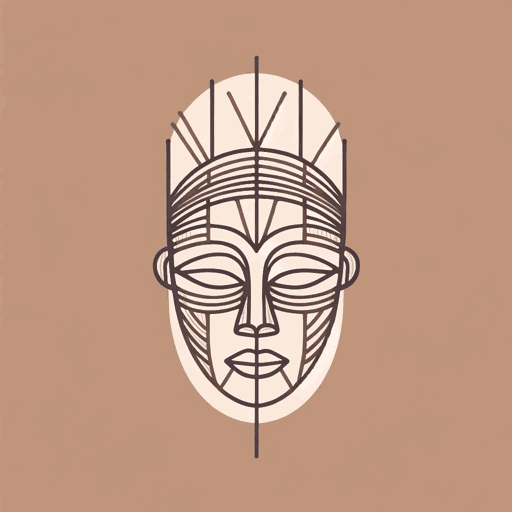
75 pages • 2 hours read
A modern alternative to SparkNotes and CliffsNotes, SuperSummary offers high-quality Study Guides with detailed chapter summaries and analysis of major themes, characters, and more.
Before You Read
Chapter Summaries & Analyses
Chapters 1-3
Chapters 4-6
Chapters 7-9
Chapters 10-13
Chapters 14-16
Chapters 17-19
Chapters 20-22
Chapters 23-25
Character Analysis
Symbols & Motifs
Important Quotes
Essay Topics
Further Reading & Resources
Discussion Questions
Revisit the epigraph of novel, which is an excerpt from William Butler Yeats’ poem, “The Second Coming.” Why did Achebe select this epigraph to introduce his novel? What elements of the novel’s plot and language draw upon the content and emotion of Yeats’ poem?
Manhood and womanhood are emphasized throughout the novel, and not only in Okonkwo’s mind. How do the gendered elements of Ibo society empower and erode the community? Is masculinity a positive force in Okonkwo’s life?
What is the relationship between spiritual and physical life in Things Fall Apart ?

Don't Miss Out!
Access Study Guide Now
Related Titles
By Chinua Achebe

A Man of the People
Chinua Achebe

Anthills Of The Savannah
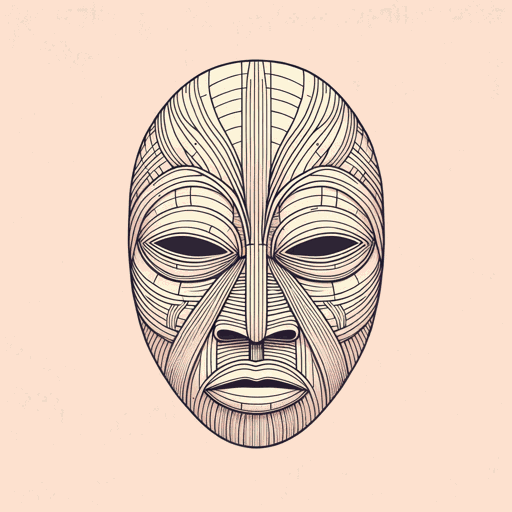
Arrow of God
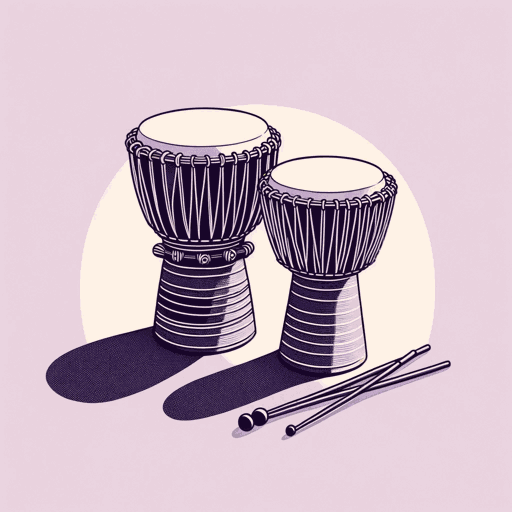
Beware Soul Brother
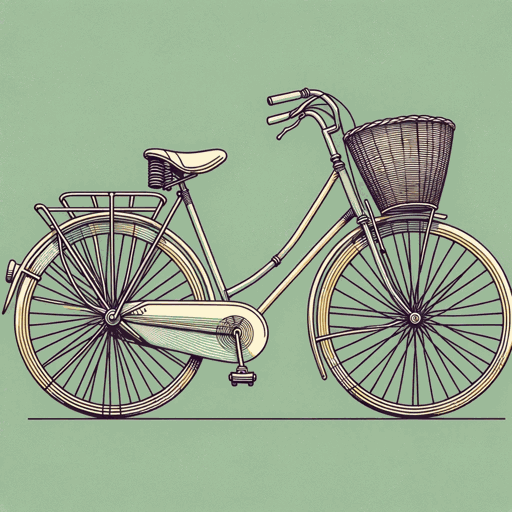
Civil Peace
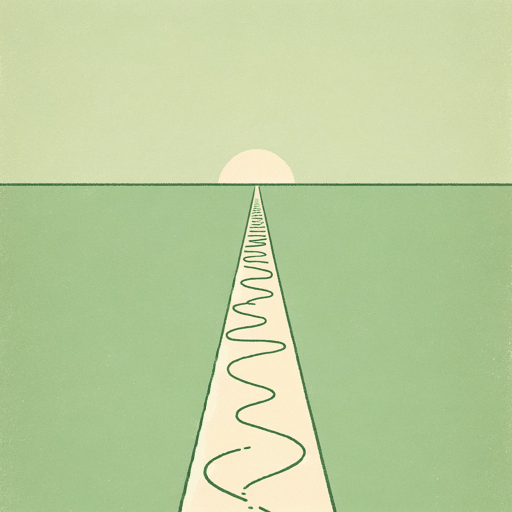
Dead Men’s Path

Marriage is a Private Affair
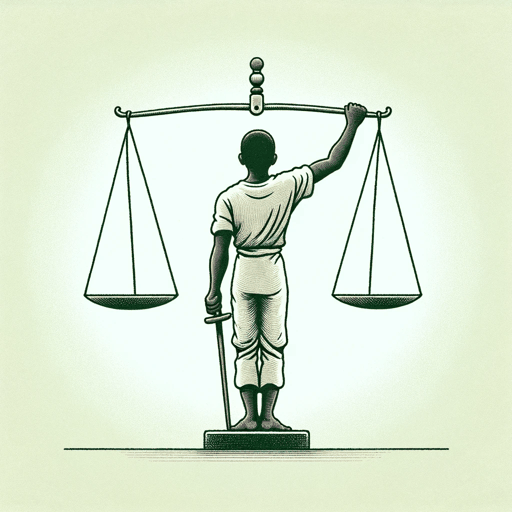
No Longer at Ease

There Was a Country
Featured Collections
African History
View Collection
African Literature
Audio Study Guides
Colonialism & Postcolonialism
Colonialism Unit
Daughters & Sons
Heinemann African Writers Series
Things Fall Apart
By chinua achebe.
Chinua Achebe's 'Things Fall Apart' remains the single best piece of literature to come out of Africa.

Article written by Israel Njoku
Degree in M.C.M with focus on Literature from the University of Nigeria, Nsukka.
‘Things Fall Apart ‘ is an immensely important novel that shines not only because of the relevance of its themes but also the poignancy embedded within its simplicity, and the greatness lying behind a seemingly basic plot. It is the work with the greatest reputation in African literature. Here we find out what makes ‘Things Fall Apart’ so worthy of this gigantic reputation.
An Important Novel
Before Achebe wrote ‘Things Fall Apart ,’ students learning about Africa through fiction had to go through works like Joyce Cary’s ‘ Mister Johnson ,’ and Joseph Conrad’s ‘Heart of Darkness .’ These are supposedly serious literary works with a clean reputation that purported to accurately represent the African man. In truth, these works only served to advance the imperialist goals of the European colonizers by representing Africans as passionate simpletons at best or as primitive animals at worst. Joyce Cary’s work typecasted the African within a very limited and specific category- that of the passionate and emotional but simple individual. What ‘Things Fall Apart’ did was to present Africans with a wider range of attributes that marked them as fully human, with typical human strengths and weaknesses. So, we get individuals like Okonkwo and Nwoye occupying worldviews and temperaments that are poles apart. We also have the likes of Obierika, who straddles a middle ground between both character types.
Achebe constructs a Umuofia society with a fairly sophisticated way of life and institutions. The people of Umuofia judged disputes under an overarching need to preserve harmony and cohesion in society. They had elaborate marriage rituals that emphasized a wider sense of familyhood and community. They buried their dead with much respect and fanfare. However, it was also a very patriarchal society that marginalized women, killed off twins, and cast away people with certain debilitating illnesses. Although this is a society that could very much do with the sophistication in medicine and technology the West had to offer, it was by no means the primitive and cannibalistic society full of blood-thirsty savages that the likes of Conrad described in their books. Achebe’s book is important because it offers a truer image of Africa that is far more respectful to Africans, and far more acknowledging of their humanity.
‘Things Fall Apart’ might seem a pretty easy read, with a style that does not appear to fulfill high Western stylistic standards, but it is no less powerful. Through the use of a structure and style that conforms to African oral tradition rather than that of the West, Achebe’s work demonstrates its authenticity and power. The work is structured in a manner that closely mimics traditional African forms. The novel is divided into three unequal parts, with the first part being as large as the second and third parts put together. The first part is only large because much time is spent on events that lay out the culture and traditions of the people of Umuofia, rather than on progressing the plot.
The narrative nostalgically goes over the community’s agricultural practices, religion, marriage, funeral customs, and judicial system, before returning to the plot at the end. This narrative structure is not consistent with Western literary forms but has its roots in the oral traditions of African storytelling. Igbo orators normally skirt around a subject by dwelling on side events before eventually hitting upon it. With the coming of the White man and his religion, the plot progresses at a rapid pace, as if to signal the rapid coming to an end of this Umuofia society that Achebe had spent so long describing.
‘Things Fall Apart’ is known not only for the originality and relevance of its themes but also its style. Achebe’s masterful use of the English language earned him praise from critics. The critic, Obumselu, praised Achebe for maintaining the literal fidelity of the Igbo words and contexts he was translating into English. He thought Achebe succeeded in preserving the local flavor of these words and contexts. His thoughts were echoed by the critic G. Adali Morty, who, writing in 1959, succinctly posited that Achebe’s use of language “has the ring and rhythm of poetry. In the background of the words can be heard the thrumming syncopation of the sound of Africa- the gongs, the drums, the castanets and the horns.”
The novel’s reputation as an authentic work is also helped by its seeming objectivity and freedom from bias and agenda. Achebe’s decision to not go to the other extreme and oppose racist portrayals of African society with idealized portrayals of the same society earned him plaudits from the likes of Gerald Moore. Moore contrasts Achebe’s intellectual honesty and realism with the chauvinistic idealism and African mythologizing, which he seems to detect in works of contemporaries of Achebe like Camara Laye. Moore believes that Achebe’s refusal to “justify, explain or condemn is responsible for a good deal of the book’s success. The novelist presents to us a picture of traditional Igbo life as just as he can make it. The final judgment of that life, as of the life which replaced it, is left to us.”
Nationalist Criticism
Another way in which critics have looked at Achebe’s ‘ Things Fall Apart ,’ and indeed most of his other works, was within the lens of the anti-colonial and pan-Africanist demand for African writers to throw away every vestige of western forms in their works. One such form is the use of the language of the colonizers, such as English. For the subscribers of this school of thought, African writers ought to write in indigenous African languages and not in English. These critics believed that the use of English by African writers would limit the ability of writers to do justice to the complexity and originality of the African imagination.
Several anti-colonial writers like Ngugi Wa Thiong’o have criticized Achebe for writing in English. To them, it was impossible to fully convey an authentic African experience while writing about it in a foreign language. But their criticisms ring hollow in the face of Achebe’s masterful use of the English language in such a way that it clearly and effectively transmits this authentic African experience. The original Igbo feeling, humor, and depths behind the dialogues are effectively conveyed.
Critics like Obiajunwa Wali believed that African writers writing in English were subjecting their work to European standards, with their novels being only a continuation of Western literary and philosophical traditions rather than being part of the evolution or maturation of a truly African one. For him, novels like ‘Things Fall Apart’ cannot be entirely African since they borrow from European stylistic and narrative strategies. Achebe’s response to this position was the argument that it is not actually about the language one uses but how one uses such language. In his essay, ‘ The African writer and the English language ,’ written in 1965, Achebe explained that there is nothing inherent about the English language that negatively restricts the originality and authenticity of the African novel. He maintained that the African writer could pass his message accurately and authentically convey the African experience through creative and masterful use of the English language.
Feminist Criticism
Although Achebe locates ‘ Things Fall Apart’ within an obviously patriarchal Igbo society, one true to the times, he nevertheless came under fire for his portrayal of women in the novel. Critics like Ifi Amadiume and Florence Stratton argued that Achebe’s portrayal of women displays deep-seated prejudicial sentiments towards them. They argue that Achebe often went beyond what was obtainable in pre-colonial Igbo society to disempower and silence the voice of women. Stratton observed that Igbo women did have considerable influence and power in pre-colonial Igbo society and that Achebe’s failure to capture this sufficiently reveals his bias against women.
In conclusion, it is easy to see why ‘Things Fall Apart’ has sustained the reputation it has so far. It is easy to see why, despite the simplicity of narration and language, it continues to retain the reverence of some of the most prominent writers and critics, as well as readers from around the world. It is an important historical work, an important ammunition against racist literature, a successful representation of the possibilities of utilizing indigenous African forms, as well as a great demonstration of an authentic way to use the English language to accurately convey African thought, sentiments, and events.
Things Fall Apart Review

Book Title: Things Fall Apart
Book Description: 'Things Fall Apart' is the first novel by Chinua Achebe and also by far his most successful. Having sold over 20 million copies worldwide, it is the most widely read, studied, and translated piece of African literature.
Book Author: Chinua Achebe
Book Edition: First Edition
Book Format: Hardcover
Publisher - Organization: Heinemann Educational Books
Date published: October 17, 1958
ISBN: 978-0435904960
Number Of Pages: 209
‘ Things Fall Apart’ is not only an important novel that successfully counters racist portrayals of Africans in Western literature but is also a disarmingly rich work that incorporates traditional African forms in a revolutionary way. The structure might be unusual, but that is only because it is staying true to the African oral tradition, rather than Western standards. ‘ Things Fall Apart ‘ owes a lot of its success and acclaim to the nuance and maturity with which it carries out its task of rehabilitating the butchered image of Africa, refusing to go the other extreme, but to rather present things as they were.
- Quite accessible
- Great depiction of traditional African society
- Revolutionary use of traditional African styles and forms
- Ability to accurately translate the original Igbo contexts into English
- Very influential to subsequent African writers
- Needlessly stripped female characters of power
Join Our Community for Free!
Exclusive to Members
Create Your Personal Profile
Engage in Forums
Join or Create Groups
Save your favorites, beta access.

About Israel Njoku
Israel loves to delve into rigorous analysis of themes with broader implications. As a passionate book lover and reviewer, Israel aims to contribute meaningful insights into broader discussions.
About the Book
Discover literature and connect with others just like yourself!
Start the Conversation. Join the Chat.
There was a problem reporting this post.
Block Member?
Please confirm you want to block this member.
You will no longer be able to:
- See blocked member's posts
- Mention this member in posts
- Invite this member to groups
Please allow a few minutes for this process to complete.
Things Fall Apart by Chinua Achebe – Literature Analysis Essay
The population of the world exists as a series of ethnic and racial groupings. These groupings form the building blocks for communities, nations, and regions, which in many cases share a common system of knowledge that defines their way of life. Varied as they are, there is no scientific criterion of pitching one culture as being superior to others as ethnocentrism would put it. One globally acclaimed endeavor to show the sustainability of different cultures is Chinua Achebe’s Things Fall Apart in which he depicts Africans as having been complete as pertains to the culture. This essay seeks to establish the strengths and weaknesses of the Igbo culture as portrayed in Things Fall Apart to assess the author’s success in achieving his main goal.
The story is set in an Igbo clan, Umuofia, which consists of nine villages throughout which the protagonist, Okwonkwo, is well known for his wrestling prowess. Okwonkwo is portrayed as a violent man who has a no-nonsense attitude towards matters pertaining to the Igbo culture. Okwonkwo’s violent nature is a portrayal of a typical Igbo on the view of violence. Igbo’s position is rigid on violence in the introductory parts of the novel. Achebe notes, “To show affection was a sign of weakness; the only thing worth demonstrating was a strength” (p. 28), and to appease Umuofia for an accidental murder, a virgin, and a young boy are given as a sacrifice by the murderers.
The same fate befalls Okwonkwo when he kills a boy accidentally at a funeral. The penalty is not compromised despite his standing in the clan. His homestead is violently brought down and animals are killed. On another occasion, Enoch, a convert to Christianity, unmasks an egwugwu in public. This action leads to the violent burning of Enoch’s homestead including the church where he fellowshipped. These examples pitch the Igbo as people whose culture took a rigid stand on culture. However, this position changes on different occasions throughout the book such as when Okwonkwo is punished due to breaking the week of peace by severely beating his wife. When the clan refuses to join Okwonkwo’s onslaught on the district commissioner’s messengers, this position is changed.
On other fronts, the Igbo are portrayed as being an organized people. There exists a well-established democratic system in Umuofia where the ndichie, elders, gather all Umuofia to make important decisions (Achebe180). Through this move, the Igbo attempt to propagate an air of equal and fair treatment of all. Everyone who has something to say is given a chance to do so in the gatherings of the clan. Achebe posits, “Age was respected among his people, but achievement was revered” (8). Okwonkwo strives to amass wealth and earn a place among the mighty and be completely delinked from his father’s weakness. Umuofia encourages hard work among its people.
Contrary to popular belief that Africans were primitive and they would go to war without any reasonable cause, in Umuofia, the oracle would sometimes forbid war. War was only an option when the cause was justifiable (Achebe 16). This aspect brings about an element of a strong religious belief among the Igbo. Okwonkwo’s position pertaining to departure from one’s culture is uncompromising, and he proves this assertion by disowning his eldest son when the son converts to Christianity. Unfortunately, he holds such extreme views yet ends up much like his father when he hangs himself.
Chinua Achebe, even though he intended to depict Africans as people who were capable of taking care of themselves in their traditional settings, he still presents a balanced perspective of this culture. Despite all events in the novel, the final position is that Africans were capable in virtually all spheres of life and they would still have made progress albeit with some influence from external cultures, as is the case all around the world.
Works Cited
Achebe, Chinua. Things Fall Apart, London: Heinemann Ltd, 1958. Print.
- Achebe’s Things Fall Apart and the Culture of the Igbo
- Belgian and British Colonial Practices in “Things Fall Apart” by Chinua Achebe
- "Things Fall Apart” by Chinua Achebe: Post Colonial Theory
- Romanticism in Wolfgang Goethe's Sorrows of Young Werther
- Hector' and Achilles Clash in The Iliad by Homer
- Novel' Significance: "Things Fall Apart" by Chinua Achebe
- Decisions of the Samsa in Kafka's "The Metamorphosis"
- The Versions of "Little Red Riding Hood" Analyzing
- Chicago (A-D)
- Chicago (N-B)
IvyPanda. (2020, June 26). Things Fall Apart by Chinua Achebe - Literature Analysis. https://ivypanda.com/essays/things-fall-apart-by-chinua-achebe-literature-analysis/
"Things Fall Apart by Chinua Achebe - Literature Analysis." IvyPanda , 26 June 2020, ivypanda.com/essays/things-fall-apart-by-chinua-achebe-literature-analysis/.
IvyPanda . (2020) 'Things Fall Apart by Chinua Achebe - Literature Analysis'. 26 June.
IvyPanda . 2020. "Things Fall Apart by Chinua Achebe - Literature Analysis." June 26, 2020. https://ivypanda.com/essays/things-fall-apart-by-chinua-achebe-literature-analysis/.
1. IvyPanda . "Things Fall Apart by Chinua Achebe - Literature Analysis." June 26, 2020. https://ivypanda.com/essays/things-fall-apart-by-chinua-achebe-literature-analysis/.
Bibliography
IvyPanda . "Things Fall Apart by Chinua Achebe - Literature Analysis." June 26, 2020. https://ivypanda.com/essays/things-fall-apart-by-chinua-achebe-literature-analysis/.

IMAGES
VIDEO
COMMENTS
Essay Title 3: Gender Roles and Women's Power in "Things Fall Apart" Thesis Statement: Achebe's "Things Fall Apart" challenges traditional gender roles within the Igbo society by portraying the strength, resilience, and influence of women, particularly through the character of Ezinma.
Things Fall Apart by Chinua Achebe is a novel whose title bears the central massage of the work. The very title 'Things Fall Apart' foreshadows the tragedy which takes place at the end of the novel. The novel depicts the tragedy of an individual as well as the tragedy of a society. The protagonist of the novel Okonkwo who was rich and ...
Full Title: Things Fall Apart. When Written: 1957. Where Written: Nigeria. When Published: 1958. Literary Period: Post-colonialism. Genre: Novel / Tragedy. Setting: Pre-colonial Nigeria, 1890s. Climax: Okonkwo's murder of a court messenger. Antagonist: Missionaries and White Government Officials (Reverend Smith and the District Commissioner)
Outline. I. Thesis Statement: Things Fall Apart recreates the conflict between European and Igbo cultures at the turn of the twentieth century by focusing on the cataclysmic changes introduced by ...
Chinua Achebe's "Things Fall Apart" Critical Review. Published in 1958, the novel describes the life of a Nigerian village - Iguedo, at the advent of the white colonization in Nigeria. Novel' Significance: "Things Fall Apart" by Chinua Achebe. This is one of the details that can be identified.
Okonkwo is a character in Chinua Achebe's novel "Things Fall Apart" who attempts to conform outwardly while questioning inwardly, although he definitely might not appear to be at first glance. Okonkwo's inner conflict caused by the tensions of... Last Page. Things Fall Apart essays are academic essays for citation.
Things Fall Apart, the title of which is an allusion to W. B. Yeats's poem "The Second Coming," is a novel in which Achebe is interested in analyzing the way things happen and in giving language ...
SOURCE: "Culture and History in Things Fall Apart," in Critique: Studies in Modern Fiction, Vol. 11, No. 1, 1969, pp. 25-32. [In the following essay, Meyers discusses Achebe's presentation of ...
In 'Things Fall Apart,' Achebe details Western colonialists' impact on African societies.This impact is outlined in a very simple manner, but within this simplicity, there is a rich and inventive use of language. The plot might move irregularly for large sections of the book, but this pacing represents a deliberate attempt to conform to an essentially African literary tradition and style.
The novel's title is a quote from a poem by the Irish poet W.B. Yeats called "The Second Coming": "Things fall apart; the center cannot hold; / Mere anarchy is loosed upon the world.". Much of the novel centers on Umuofia traditions of marriage, burial, and harvest. Achebe's decision to use a third-person narrator instead of writing the book ...
Thanks for exploring this SuperSummary Study Guide of "Things Fall Apart" by Chinua Achebe. A modern alternative to SparkNotes and CliffsNotes, SuperSummary offers high-quality Study Guides with detailed chapter summaries and analysis of major themes, characters, and more.
In his essay, 'The African ... Book Title: Things Fall Apart. Book Description: 'Things Fall Apart' is the first novel by Chinua Achebe and also by far his most successful. Having sold over 20 million copies worldwide, it is the most widely read, studied, and translated piece of African literature.
This essay seeks to establish the strengths and weaknesses of the Igbo culture as portrayed in Things Fall Apart to assess the author's success in achieving his main goal. We will write a custom essay on your topic. The story is set in an Igbo clan, Umuofia, which consists of nine villages throughout which the protagonist, Okwonkwo, is well ...
The novel is a very orderly work. To return to characters, Things Fall Apart presents Okonkwo as a tragic hero who struggles against internal and external forces and meets a tragic end. Obierika ...
Things Fall Apart, first novel by Chinua Achebe, written in English and published in 1958. Things Fall Apart helped create the Nigerian literary renaissance of the 1960s. The novel chronicles the life of Okonkwo, the leader of an Igbo community, from the events leading up to his banishment from the community for accidentally killing a clansman ...
3. Achebe presents details of daily village life in Umuofia, as well as details concerning the Igbo culture. Describe the setting of the novel. 4. What is chi? Explain the importance of chi in shaping Okonkwo's destiny. 5. Obierika is a foil for Okonkwo. That is, when compared to Okonkwo, the contrast between the two characters emphasizes the ...